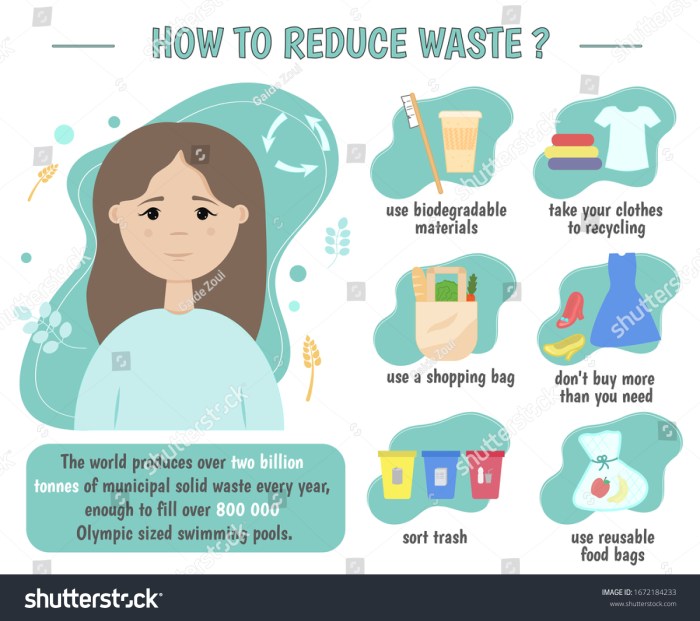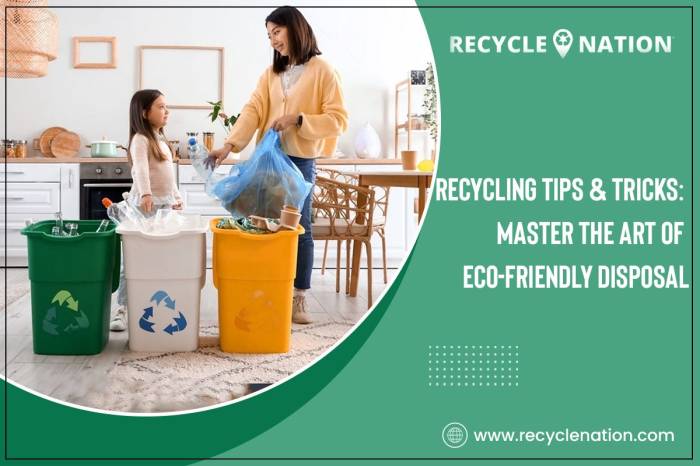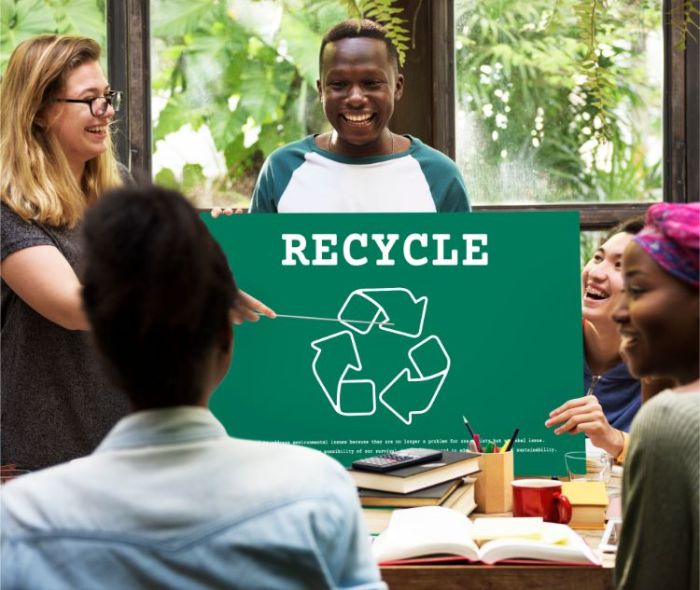Embark on a journey towards a greener lifestyle with these 12 Recycling Tips for a More Eco-Friendly Lifestyle, where small changes can make a big impact. Learn how to recycle effectively and live sustainably.
Recycling Basics

Recycling plays a crucial role in protecting the environment by reducing waste and conserving resources. By recycling, we can help minimize the amount of trash that ends up in landfills and incinerators, ultimately leading to a cleaner and healthier planet for future generations.
Common recyclable materials found in households include paper, cardboard, glass, plastic, and metal. These items can often be repurposed into new products, reducing the need for raw materials and energy-intensive manufacturing processes.
Proper Sorting of Recyclables
Effective recycling starts with proper sorting of recyclable materials. Here are some tips to help you sort your recyclables efficiently:
- Separate paper and cardboard from glass, plastic, and metal to prevent contamination.
- Rinse out food and beverage containers before recycling to avoid attracting pests and mold.
- Remove any non-recyclable parts, such as plastic caps or labels, from containers before recycling.
- Check with your local recycling program to ensure you are following their guidelines for sorting and preparing recyclables.
Eco-Friendly Practices at Home

When it comes to living a more sustainable lifestyle, making eco-friendly choices at home can have a significant impact on reducing waste and protecting the environment. By opting for sustainable alternatives, minimizing waste generation, and upcycling items, you can contribute to a greener future.
Sustainable Alternatives to Single-Use Plastics
Single-use plastics are a major contributor to environmental pollution. By switching to sustainable alternatives, you can reduce your carbon footprint and help protect marine life. Some eco-friendly options include:
- Using reusable shopping bags instead of plastic bags
- Investing in a stainless steel or glass water bottle instead of disposable plastic bottles
- Opting for beeswax wraps or silicone food covers instead of plastic cling film
Ways to Reduce Waste Generation
Reducing waste at home is essential for a sustainable lifestyle. By making simple changes to your daily activities, you can minimize the amount of waste produced. Some tips to help reduce waste include:
- Composting organic waste to create nutrient-rich soil for your garden
- Buying in bulk to reduce packaging waste
- Repurposing glass jars and containers for storage instead of throwing them away
Innovative Ideas for Upcycling Items
Upcycling is a creative way to give new life to old items instead of discarding them. By upcycling, you can save money, reduce waste, and add unique touches to your home decor. Some innovative ideas for upcycling include:
- Turning old t-shirts into reusable cloth napkins
- Repurposing wooden pallets into furniture or planters
- Creating artwork from old magazines or newspapers
Recycling Tips for Different Materials

When it comes to recycling, different materials require different handling to ensure they are properly processed and reused. Here are some specific recycling tips for paper, plastic, glass, and metal to help you make more sustainable choices in your everyday life.
Paper Recycling Tips
- Always separate clean paper from other materials to ensure better recycling outcomes.
- Remove any staples, paper clips, or plastic windows from envelopes before recycling.
- Consider using both sides of the paper before recycling to reduce waste.
- Recycle newspapers, magazines, cardboard, and office paper in designated bins or facilities.
Plastic Recycling Tips
- Check the plastic recycling codes on containers to determine if they are recyclable in your area.
- Rinse out plastic containers before recycling to prevent contamination.
- Avoid recycling plastic bags and opt for reusable alternatives to reduce plastic waste.
- Recycle plastic bottles, containers, and packaging to promote a circular economy.
Glass Recycling Tips
- Separate glass bottles and jars by color (clear, green, brown) for more efficient recycling.
- Avoid breaking glass containers as they can contaminate other recyclables.
- Recycle glass packaging and containers to reduce energy consumption in manufacturing.
- Look for local glass recycling programs or drop-off locations to properly dispose of glass items.
Metal Recycling Tips
- Collect aluminum cans, steel cans, and other metal items for recycling to conserve resources.
- Crush or flatten metal cans to save space and make recycling more efficient.
- Recycle metal items like appliances, wires, and utensils to prevent them from ending up in landfills.
- Support scrap metal recycling facilities that can process and reuse metal materials effectively.
Environmental Impact of Recycling Different Materials
Recycling paper and cardboard helps save trees and reduce deforestation, while recycling plastics can prevent marine pollution and wildlife harm. Glass recycling conserves energy and reduces greenhouse gas emissions, and metal recycling helps conserve natural resources and reduce landfill waste.
Recycling Electronics and Hazardous Waste Responsibly
- Find electronic waste recycling centers or programs to dispose of old devices safely.
- Remove personal data from electronic devices before recycling to protect your privacy.
- Recycle batteries, light bulbs, and other hazardous waste at designated drop-off sites to prevent environmental contamination.
- Support e-waste recycling initiatives to promote responsible disposal of electronic products.
Final Thoughts

In conclusion, incorporating these recycling tips into your daily routine can lead to a more eco-friendly lifestyle and a healthier planet for future generations. Start making a difference today!